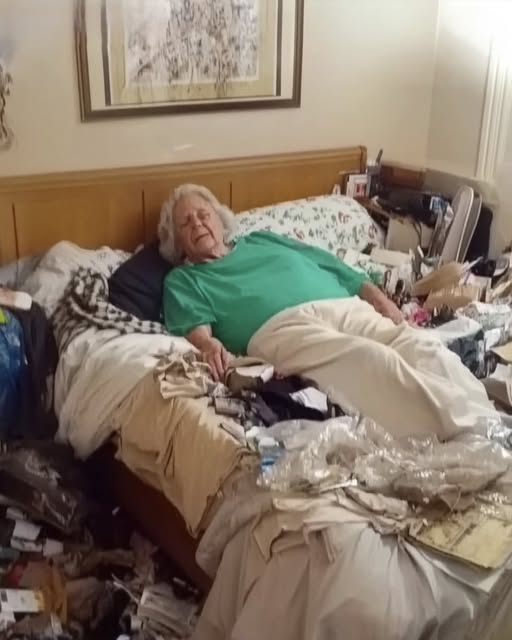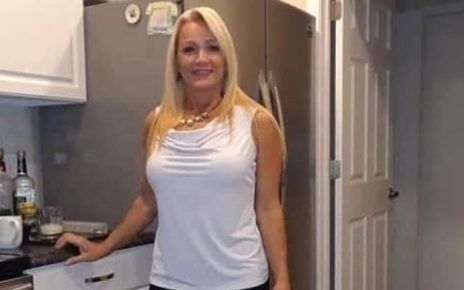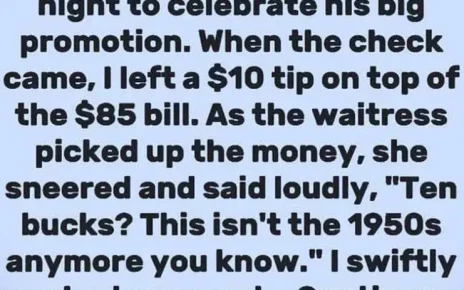When my sixteen-year-old son expressed his desire to spend the summer caring for his disabled grandmother, I was overwhelmed with emotion. After years of attitude, rebellion, and slamming doors, this felt like a pivotal moment—a sign of maturity. Perhaps he was finally growing up.
I was mistaken.
It all began with a call I’ll never forget.
“Please… come save me from him,” my mother whispered, her voice trembling like a candle flickering in the wind.
Then the line went dead.
For a moment, I was frozen. I couldn’t move or breathe. My mother—proud, strong-willed, and never one to show fear—sounded terrified. Of him. Of my son.
My hands shook as I grabbed my keys and rushed out the door.
The highway blurred past me. My thoughts raced faster than the car, tumbling through every conversation I had dismissed. I recalled the grin on his face when he volunteered to help. “I’m almost a man now,” he had said, his smile not quite reaching his eyes.
At that moment, I had seen hope. Now, I saw something entirely different.
I remembered trying to call her a few times after he moved in. Each time, he answered. “Grandma’s asleep,” he would say, always too quickly. “She’s fine, Mom. Relax.”
I didn’t relax. Not anymore.
By the time I turned onto her street, the sun had dipped behind the trees. Even in the fading light, something felt off. Her once perfectly manicured lawn was overgrown. The porch sagged under the weight of empty cans and cigarette butts. Music blared from inside the house—too loud, too chaotic.
This wasn’t my mother’s home. It was a war zone.
I stormed up the steps, heart racing, and pushed the door open.
The smell hit me first—stale beer, sweat, smoke. Then the noise: laughter, shouting, music thumping from somewhere deep inside. Teenagers filled the room, sprawled over furniture, spilling drinks on the floor as if they owned the place.
I shoved through the crowd, scanning faces, shouting his name.
A girl slumped on the couch looked up, blinking. “Whoa, chill, lady. It’s just a party.”
“Where is she?” I snapped.
She blinked again. “Who?”
“My mother.”
She shrugged. “Haven’t seen any old lady.”
My chest burned with anger. I tore through the hallway, heading straight for the back of the house. Her bedroom door was closed, the knob scratched and dented. I pounded on it.
“Mom? It’s me. Are you in there?”
A weak voice answered. “I’m here… please. Just get me out.”
I didn’t wait. I opened the door—and there she was, curled on the bed like a ghost of her former self. Pale. Exhausted. Trembling.
“Mom…” I knelt beside her, gathering her into my arms.
Her voice was barely a whisper. “He started with just a few friends. I told him to stop. He said I was in the way. He locked me in here.”
In that moment, I felt the full weight of my mistake. I had sent my mother into a cage and handed my son the key.
I kissed her forehead. “I’m here now. I’m fixing this.”
With a calm that surprised even me, I walked back into the living room. There he was, leaning against the wall as if nothing was wrong. As if this wasn’t a disaster zone.
He looked up and froze.
“Mom?”
“Get everyone out. Now.”
He blinked. “It’s just a party—”
“Now.”
My voice cut through the noise, silencing the room. One by one, the kids filtered out, avoiding my gaze. When it was just him and me left—alone in the wreckage—I confronted him.
“I trusted you,” I said, my voice low. “She trusted you. And this is what you did?”
He tried to shrug it off, but I could see the panic beneath the surface. “She didn’t need the whole house. I just wanted some freedom.”
I took a deep breath. “You’re going to a disciplinary summer program. Everything you own that’s worth anything? Gone. Sold to fix this mess. And if you don’t change, you’re out when you turn eighteen.”
He opened his mouth, then closed it. For once, there were no excuses.
That night, I packed his bags.
Restoring the house took the entire summer. Broken furniture, stained walls, and the haunted look in my mother’s eyes had to be slowly, painfully rebuilt.
But something else shifted, too.
By the end of summer, he returned quieter. Calmer. He no longer slammed doors. He completed his homework without being asked and apologized to his grandmother without prompting. At first, I waited for it to be an act. But gradually, I began to believe it.
Two years later, he stood on her porch again, wearing a crisp shirt with a college acceptance letter tucked in his bag. He held a small bouquet in his hand. His voice had matured, no longer the voice of a boy.
“I’m sorry, Grandma,” he said, his eyes shining with regret.
As I watched the woman who raised me open her arms to the boy I nearly lost, I realized that some lessons take a lifetime to learn.
But sometimes, a turnaround begins with just one honest apology—and the courage to earn it.




